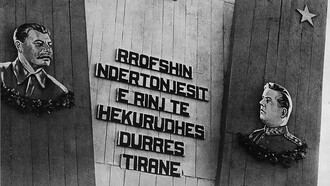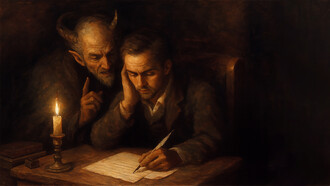History remembers councilors, generals, admirals, and governors by their titles, but the surrounding people knew them by something else—nicknames. Such nicknames, given by everyone from subordinates to the monarch, could determine whether a statesman was remembered with admiration or scorn. Nicknames were also widespread throughout the Ottoman Empire, from its smallest villages to its grandest palaces, spanning all social classes across its 600-year history. The absence of surnames, the lack of a land-based aristocracy (and therefore, family names and aristocratic titles), and the prevalence of common religious names made nicknames almost necessary for personal identification in the empire.
Nicknames for Ottoman "Pasha"s, a common title for high-ranking statesmen, mostly highlighted their birthplace, ethnicity, profession, personality, and also their odd habits. They were more than just labels; they were social markers that defined reputations and secured positions within the imperial hierarchy. Some were tributes, others parodies, while some simply persisted, their purpose forgotten. Collectively, however, they provide a captivating insight into the empire's political and social structure, a realm spanning three continents and governed by statesmen from diverse backgrounds.
The classical era often used "Lala" (Tutor) as a nickname; for example, Lala Şahin Pasha (d. 1380s) tutored a sultan's son. Likewise, Cerrah (Surgeon) Mehmed Pasha (d. 1604) earned that title by circumcising the sultan's son. Some job-related nicknames were more unusual, though. We find Cadı (Witch) Yusuf Agha (d. 1680s), a Georgian who led the Janissaries, the empire's elite, praetorian-style soldiers. The reason for his "Witch" moniker, unrelated to his profession, remains unknown. One example is Öküz (Ox) Mehmed Pasha (d. 1619). This nickname is unexpected because in Turkey, "ox" is used as an insult. He was given this nickname because his father was an ox caretaker. After marrying the sultan's daughter, they nicknamed him "Groom," a much better title than before. We understand why Mehmed Pasha had an animal-related nickname, but the reason behind Ankebut (Spider) Ahmed Pasha's (d. 1680) moniker is unknown. That nickname, according to some, came from his perpetual readiness.
Some were named after their food preferences, like Soğanyemez (literally "Does not eat onion") and Mahmud Pasha (d. 1750s). He despised onions so much that he even disliked those who ate them. His strong aversion led to his downfall; he was removed from his post after beating several soldiers who were carrying onions to a military ship. Pırasa (Leek) Ahmed Pasha (d. mid-1700s) also had an unusual nickname for a statesman of an empire. His name was derived from his village in the Morea region of Greece, where the locals were apparently fond of eating leeks.
Interestingly, some statesmen were labeled with numbers. The most renowned, Yirmisekiz (Twenty-eight) Mehmet Çelebi (d. 1731), received his moniker for his service within the Janissary Corps' 28th Regiment. He was the first Ottoman diplomat to hold a permanent mission in another state, traveling to Paris in 1720. His notes on his journey and experiences in France significantly influenced Ottoman modernization and social life. His son, also a statesman, received a similar nickname: Yirmisekizzade (Son of Twenty-Eight). While Mehmed Çelebi was a highly educated man, Yedi-Sekiz (Seven–Eight) Hasan Pasha (d. 1905) was the opposite. Despite lacking any formal education and never graduating from a military academy, he rose to a high rank in the army. To sign documents, he simply wrote ٧ (7) and ٨ (8) in Ottoman Turkish, as they were easy to write. That habit earned him his unusual nickname.
The nickname could change after death as well. For example, Makbul (Favorite) Ibrahim Pasha (d. 1536) was the closest statesman to Suleiman the Magnificent, as his nickname suggested. He had served the sultan since his youth, but political intrigue in the imperial palace led to his execution. After his downfall, his moniker changed to Maktul (Killed) Ibrahim Pasha. Likewise, Ahmed Pasha (d. 1648) was posthumously called Hezarpare (literally "Thousand Pieces") because enraged soldiers dismembered him into pieces following a rebellion. Adding to the tragedy, his body oil was even sold as medicine. The case of Cenaze (literally "Corpse") Hasan Pasha (d. 1810) is particularly intriguing, as unexpectedly, this nickname was given to him while he was still alive. When he received news of his promotion, he was bedridden with a severe illness, leading others to call him "Cenaze." However, even after he recovered, the name stuck.
Despite being rare, there were some statesmen with nicknames of foreign origin. Mezzomorto ("Half-dead" in Italian) Huseyin Pasha (d. 1700s) was a convert from Mallorca who served as a ship captain in the Ottoman navy and eventually became an admiral. He earned his nickname after being seriously wounded in a naval battle against the Spanish.
For example, Deli (Crazy/Mad) Hüseyin Pasha (d. 1659), one of many "Deli" figures in Ottoman history, earned this label because of his extreme bravery and aggressiveness. As grand admiral of the Ottoman navy, he took part in the Siege of Crete, one of the longest sieges in history, lasting over 21 years. Similarly, Daltaban (Barefoot) Mustafa Pasha (d. 1703) was given his nickname because of his cruel nature and vulgar speech. Şeytan (Devil) Ibrahim Pasha (d. 1685), on the other hand, offers an interesting example of how a nickname could change.
After failing in battles against the Russians and Cossacks in Ukraine, he was labeled "Devil." However, following the collapse of the Ottoman army in Vienna (1683), he played a crucial role in halting the advancing Austrian forces and successfully defended Budapest. His reputation shifted, and he was then called "Melek" (Angel). Some claim his first nickname stemmed from his drinking habits; when he drank, he was a "Devil," and when he sobered up, he became an "Angel." Meanwhile, Ahmed Pasha (d. 1691) had a more straightforward case, as his well-known drinking problem was reflected directly in his nickname: "Sarhoş" (Drunk).
Despite the many fascinating and unusual nicknames in Ottoman history, Ibşir Pasha (d. 1665) arguably had the worst of them: "Deyyus-ı Ekber" (literally, "The Greatest Cuckold"). The story behind this title is both awkward and absurd. During the reign of Sultan Ibrahim, sometimes called "Mad Ibrahim" because of his suspected psychological issues, the empire faced severe crises. Yet, Ibrahim continued his extravagant lifestyle, demanding lavish "gifts" from provincial governors, essentially a more polite term for the exploitation of local populations through increased taxation. One governor, Ali Pasha of Sivas (in eastern Anatolia), refused to comply, unwilling to burden the poor with additional taxes.
In response, Sultan Ibrahim made an unthinkable demand: instead of money, he ordered Ali to bring him the beautiful wife of Ibşir Pasha, a fellow governor. Ali Pasha, furious over this unacceptable humiliation, seized the opportunity to rebel, rallying followers by depicting İbrahim as an unworthy ruler. Ironically, despite significant prior disrespect toward Ibşir Pasha and his wife, Sultan Ibrahim tasked him with quelling Ali Pasha's rebellion. Ibşir obeyed, led an army against Ali Pasha, and ultimately captured and executed him. When Ali was brought before him, he reportedly lost his mind in fury. After all, he had rebelled to protect Ibşir and his wife, only for Ibşir to remain loyal to the very ruler who had humiliated him. In his last moments, Ali Pasha hurled terrible insults at Ibşir, including the infamous "Deyyus-ı Ekber."
In the end, Ottoman nicknames for statesmen were as colorful and unpredictable as the empire itself. From brave admirals to cunning politicians, these quirky labels told stories of triumph, scandal, and everything in between. Some were earned through heroic feats, others from strange habits or unfortunate circumstances. These nicknames, often shaped by a combination of personal traits, actions, and sometimes unfortunate circumstances, reflect the larger-than-life drama of an empire that spanned centuries and continents. From the honorable to the absurd, the stories behind these nicknames offer an interesting glimpse into the lives of those who shaped the Ottoman world.















